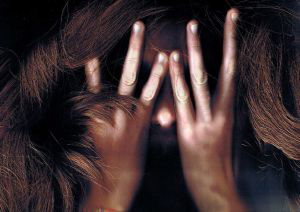VIOLENCE

Search this site
| contribute | advertise |
| terms of use |
© 2024 Mambaonline cc
| Lesbian South Africa |
| Lifestyle | News |

WHEN GIRLFRIENDS GET VIOLENT
 So does the social malady of domestic violence depend on a heterosexual equation as is widely assumed? No. The surprising fact is that the percentage of domestic violence in homosexual relationships is higher than in heterosexual partnerships.
So does the social malady of domestic violence depend on a heterosexual equation as is widely assumed? No. The surprising fact is that the percentage of domestic violence in homosexual relationships is higher than in heterosexual partnerships.
A gay alliance has its own dynamics, which contributes to more stress than that experienced in a heterosexual union. Statistics inform us that the violence in these relationships far exceeds any other in ferocity and frequency. Most cases of domestic violence against men are reported from gay relationships. It spreads across the whole violent spectrum of battering, stabbing, shooting, and assaulting sexually as well as emotionally.
The need to seize power and control of the other does not differentiate between the sexes. The patterns are similar to that found in heterosexual partnerships. The victim continues to live with the abuser; inexplicably enduring years of abuse until finally deciding to walk out, or is killed by the violence. The victim is also reluctant to use available agencies of help to charge the abuser and charge him or her with a domestic violence misdemeanor conviction. Ironically, here the victim is male, too. It has been noted that one of the highest causes of death in gay communities around the world is domestic violence.
Now given the male preoccupation with power and control whether in heterosexual or gay relationships, it would seem that the ideal alliance would be the one between women, who are supposed to be the docile, peace loving, and submissive second sex. It is surprising, but true, that lesbian relationships have more than their share of violence than is attributed to them. Whether it is the stress of living in a homophobic society, or the daily pressures of the relationship, lesbian unions are replete with verbal, emotional, and even physical violence.
While most domestic violence issues remain shut from the public eye till they have fermented beyond control, lesbian domestic violence rarely if ever finds the light of day. The main reason here is that the victim fears that she will not be taken seriously. She truly feels isolated from the typical social machinery which other victims have recourse to use, and may not want to avail of the help afforded by heterosexual agencies. Voluntary agencies that exclusively shelter lesbian victims of domestic violence are virtually non-existent.
This problem is faced by both gay and lesbian victims of domestic violence. They fear ridicule at the hands of the police, the judicial systems, and voluntary agencies, which are the main outlets of help for other victims of domestic violence. Domestic violence law is based on a heterosexual perspective where the identities of the abuser and the abused are beyond doubt. In a gay domestic violence issue, it is very hard to see a man as a victim in a gay relationship, or a woman as an abusive partner in a lesbian relationship.
Share your story, opinion and feedback in the mambagirl.com forum below.
ABOUT ADRIENNE DEVITA
www.domesticviolencenomore.com is a site dedicated to domestic violence survivors. Adrienne DeVita shares her personal experiences at the hands of her abuser to help partners in similar situations and violent relationships.



